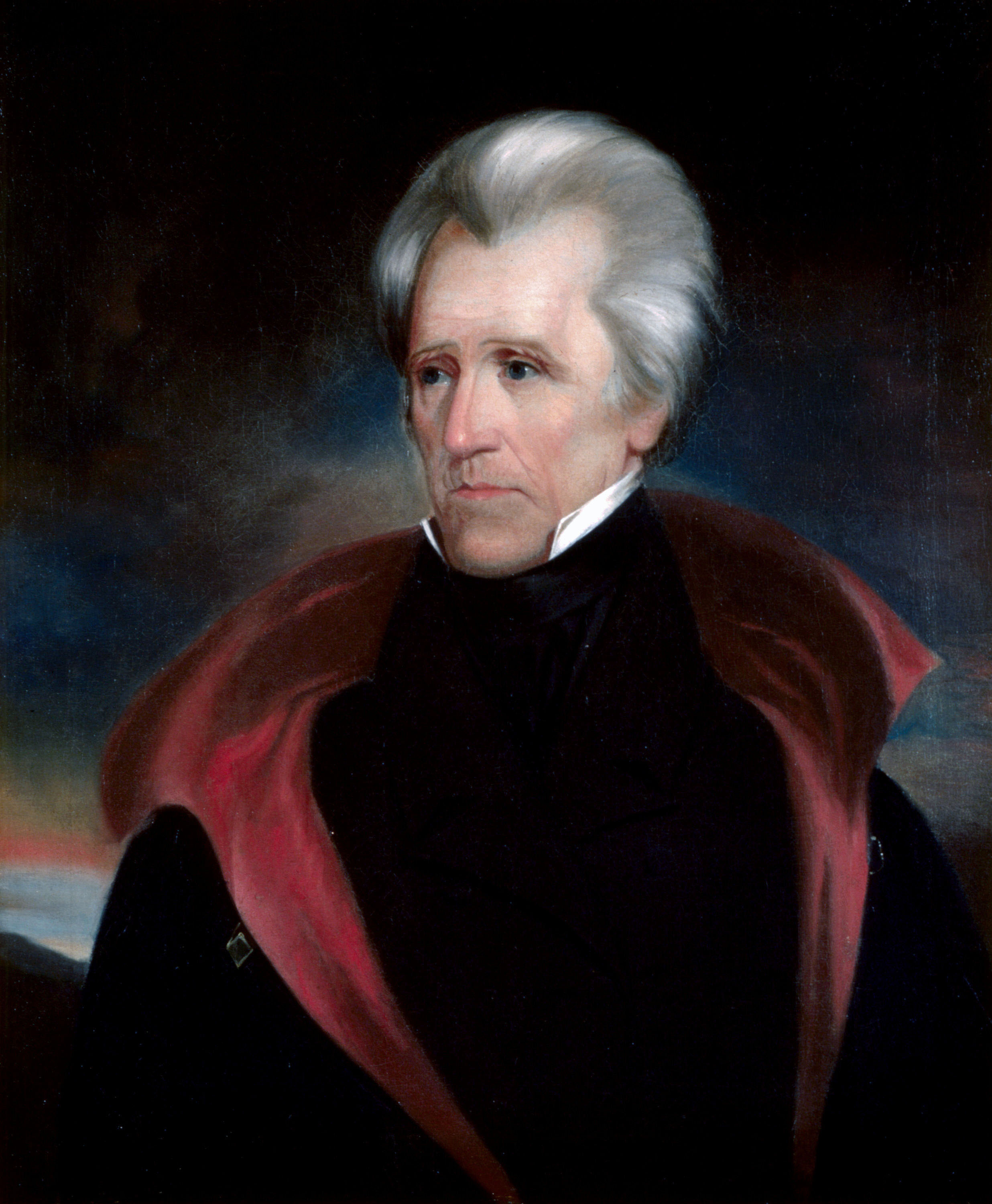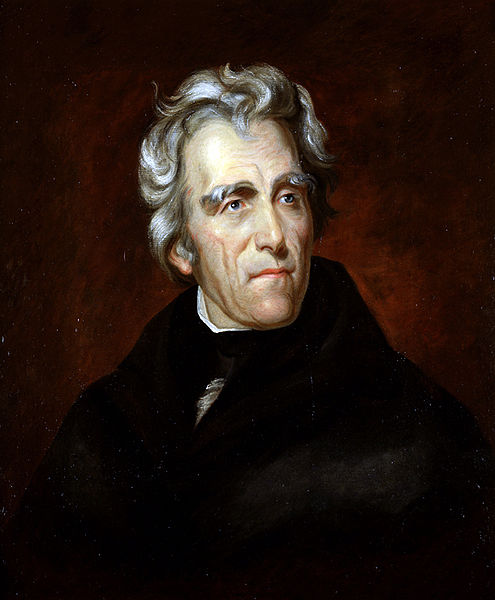Andrew Jackson Was a Supporter of Which of the Following
The right answer is the D Limited federal government. Well-wishers and supporters lined his route home cheering the way for the man who had sacrificed much to give them a voice in Washington.

Andrew Jackson Facts Information And History On The Life Of The 7th U S President
5 points Abolition of slaveryLimited federal governmentImplied powers of the Supreme CourtPreservation of.

. Abolition of slavery b. Andrew jackson appealed to all of the following groups except. Andrew Jackson generally in favor of states rights saw nullification as a threat to the Union.
Though his support was heavier in the South he was determined to keep a unified nation. Andrew Jackson supported all of the following EXCEPT Indian removal a. B he received a plurality of electoral votes.
Correct answer to the question Andrew jackson was a supporter of which of the following. He set the precedent of the president as the sole representative of the people and as such could wield power broadly to carry out their will. Although he was no longer the president others still sought his counsel and support.
Limited federal government c. He is known for founding the Democratic Party and for his support of individual liberty. Which of the following statements would most likely have been spoken by a supporter of Andrew Jackson.
Andrew Jackson supported all of the following except A Indian removal B the right of nullification C the removal of federal deposits from the Bank of the United States D annexation of new territory E use of the presidential veto power. Courtesy Library of Congress LC-DIG-pga-00295. He also defended the spread of slavery.
The grassroots supporters of Old Hickory called themselves Democrats and would eventually form the Democratic Party. Andrew Jackson with the Tennessee Forces on the Hickory Grounds. Andrew Jackson March 15 1767 June 8 1845 was an American lawyer general and statesman who served as the seventh president of the United States from 1829 to 1837.
Who were Andrew Jacksons supporters. In early 1812 Andrew Jackson was an untested military leader whose political positions had already drawn the ire of the Madison administration. Andrew Jackson was a supporter of which of the following.
Andrew Jackson was the seventh President of the United States from 1829 to 1837 seeking to act as the direct representative of the common man. General Andrew Jackson defeated President John Quincy Adams after a campaign in which both sides made strong and bitter accusations. 8Andrew Jackson was a supporter of which of the following.
Which of these is associated with the presidency of andrew jackson. Andrew Jackson was the seventh president of the United States. D the 12th amendment in a House vote limits the candidates for president to the top 3 electoral vote-getters.
At horseshoe bend andrew jackson won a smashing. Rowdy Supporters Cheer on the New President On March 4 1829. Correct answer to the question Andrew jackson was a supporter of which of the following.
E all of the above. CongressAn expansionist president Jackson sought to. Jackson laid the framework for democracy paid off the national debt.
The rise and presidency of Old Hickory is memorable to Americans. Andrew Jackson supported all of the following except A Indian removal B the right of nullification C the removal of federal deposits from the Bank of the United States D annexation of new territory E use of the presidential veto power. He was from Kentucky.
Jacksons opponents nicknamed him jackass a moniker that the candidate took a liking to so much so that he decided to use the symbol of a donkey to represent himself. AThe case set definition for navigation placed state control over all. What was one particular goal that andrew jackson pursued during his presidency.
Implied powers of the supreme court d. Andrew jackson appealed to many common americans in the early 19th century because. Jackson who served as the seventh President of the United States for two terms between 1829 and 1837 favored the creation of a small and efficient federal government responsive to to the demands of the voters the common man and he was determined to remove from office incompetent or.
Andrew Jackson left Washington for home on March 7 1837. C he was a Democratic-Republican. President Andrew Jackson announces that the government will no longer use the Second Bank of the United States the countrys national bank on September 10 1833He then used his executive.
He supported the Indian Removal act. Quick to take offense Jackson was known for his sudden flashes of rage and propensity. The removal of federal deposits from the Bank of the United States c.
9Which answer best describes an important outcome of the Gibbons v. Before the House vote in the 1824 election JQ Adams and Speaker of the House Henry Clay had a meeting in. Before being elected to the presidency Jackson gained fame as a general in the United States Army and served in both houses of the US.
AAbolition of slavery BLimited federal government CImplied powers of the Supreme Court DPreservation of Native American land B. The right of nullification b. Jackson pushed settlement into the frontier.
A We endorse federal support of internal improvements b The federal government should not be used as an instrument of power for moneyed interests c I believe government should be involved in social and moral causes d. President Andrew Jackson firmly established that presidents could be more than just mere executives enforcing laws. In his view the federal government derived its power from the people not from the states and the federal laws had greater authority than those of the individual states.
He also wanted to make sure the government was responsible for its actions.

Jacksonian Democracy Is The Political Movement Toward Greater Democracy For The Common Man Symbolized By American Politici Andrew Jackson Seminole Wars Jackson


Comments
Post a Comment